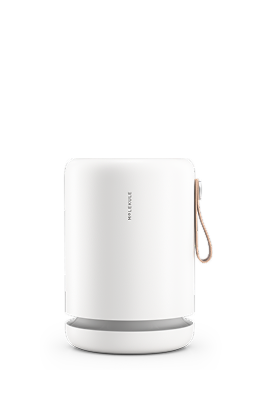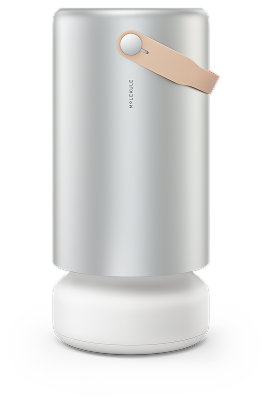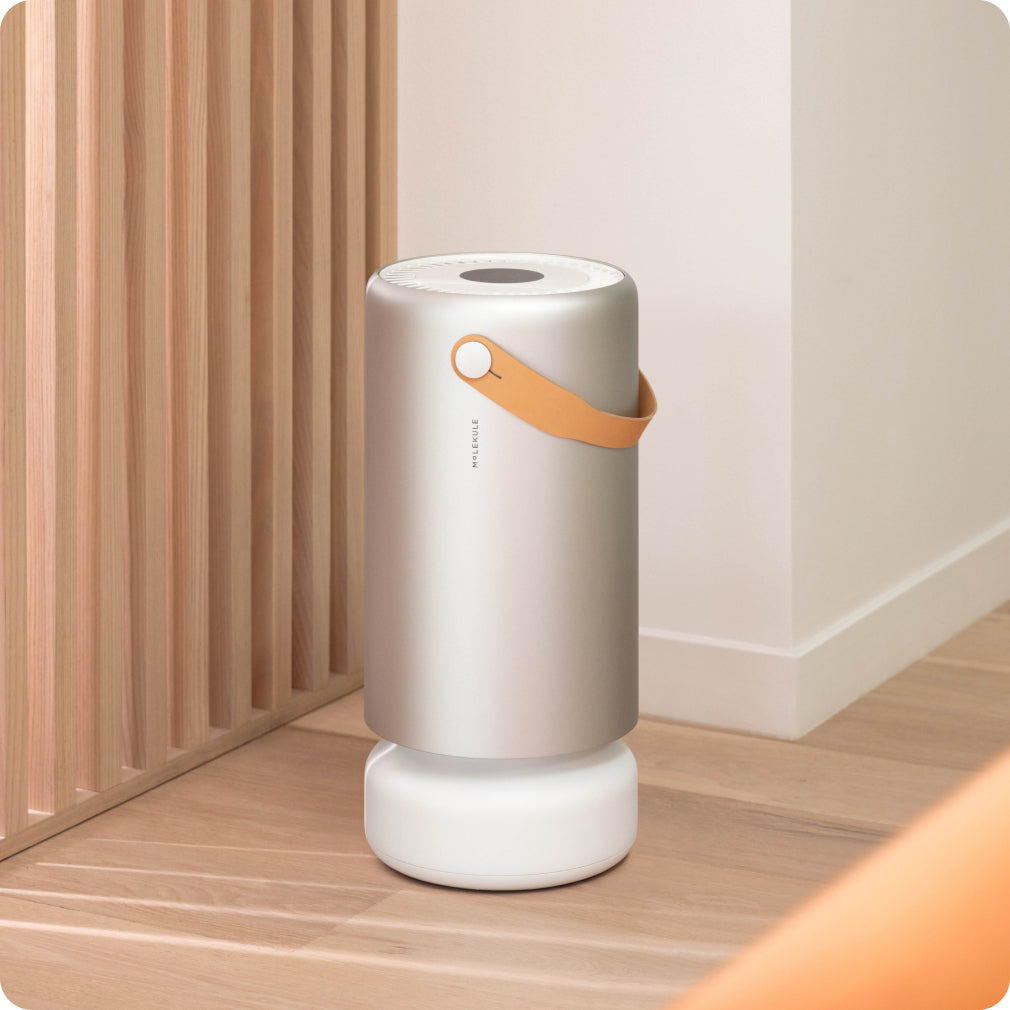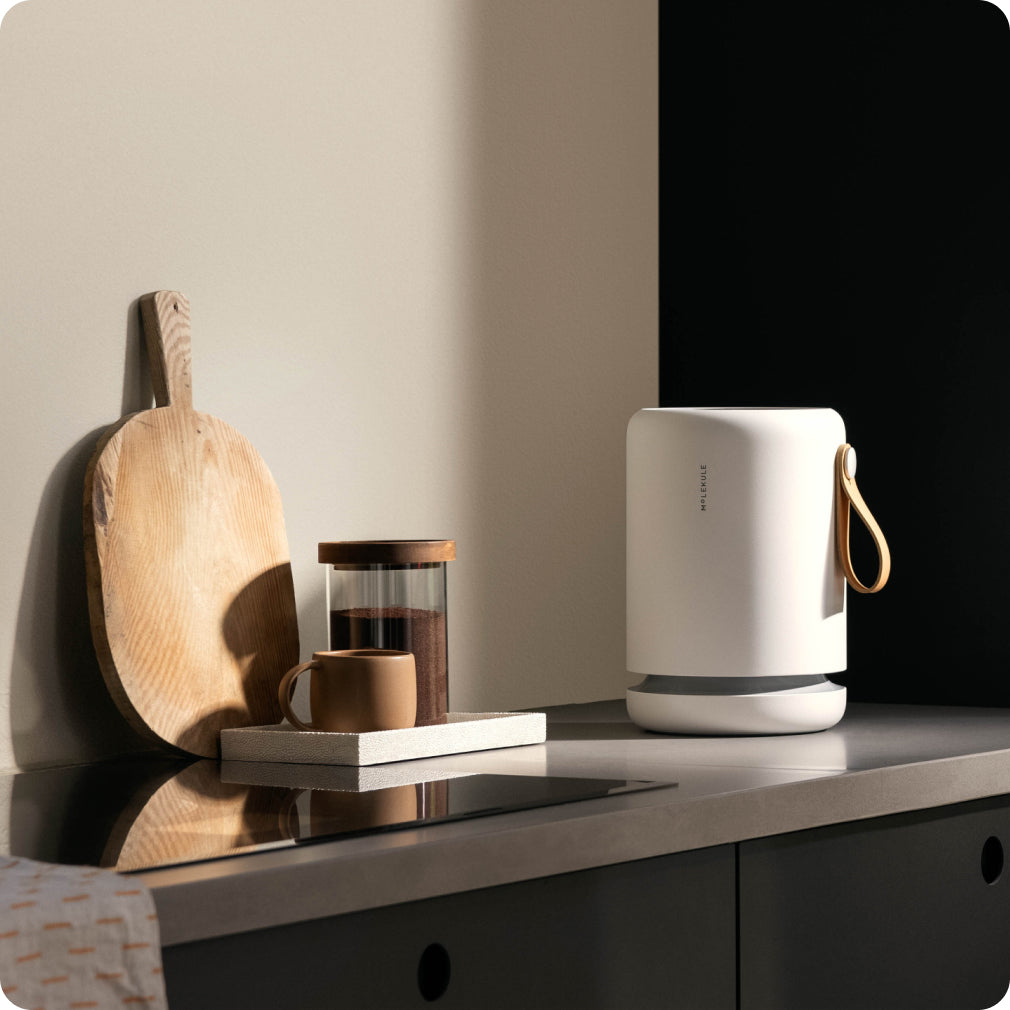As we say goodbye to summer and anticipate the cooler temperatures of fall, these next few months may also bring some unwanted changes to the air inside your home. Although there are many discussions about the adverse effects of humidity in the summer, cold, dry air can be just as bad for your health and living environment. So, is it possible for the air in your home to become too dry? Below, we discuss why dry air in your home is a concern, and what you can do to avoid it.
What causes dry air?
The relative humidity of your home is the amount of moisture in the air relative to the maximum amount of water vapor that the air can hold at any given temperature. The EPA recommends keeping the relative humidity in any building between 30% and 50%. Having too much moisture in the air can bring a host of problems, such as mold and mildew growth, however dry air can cause problems as well.
As the air gets colder, it loses some of its ability to retain moisture. This is why so many people associate dry air with winter, and why it makes sense to prepare your home before the upcoming colder months. As the air indoors becomes drier, it can start to have a negative impact on your home, belongings and even your health.
Can dry air damage your home?
Many people are familiar with the issues caused by excess humidity—condensation, water stains, musty smells etc. However, not as many people realize that dry air can also potentially cause property damage, especially during the winter, although it can be an issue year-round. The relative humidity in your home can be decreased by the following:
- Cold, dry air that enters your home through any gaps in window and door frames;
- Running the central heating system and using the fireplace.
You may not notice the effects of excessively dry air right away. However, if left unchecked, low relative humidity can potentially cause lasting damage to your home. Some of the household problems created by dry air include:
- Damage to hardwood floors: Dry air can cause hardwood floors to dry out, become warped and start to separate.
- Shifting door and window frames: Wooden door and window frames can shrink and become warped when exposed to dry air. This can make it difficult to open and shut the windows and doors in your home.
- Wall damage: No matter what treatment you have on your walls, they can be severely affected by dry air exposure. When the relative humidity in your home is too low, it can make paint bubble and crack, wallpaper peel, and even cause gaps between the walls and the ceiling.
Dry air can also cause damage to wooden furniture, musical instruments, books and art. Another downside to dry air in the home is the buildup of static electricity. It may not cause lasting damage, but it can definitely be annoying and even painful.
Can dry air negatively impact your health?
Our bodies need a certain amount of water each day to survive. According to the U.S. National Library of Medicine, that amount is about 97 to 125 fluid ounces. Without enough water, the balance of your body fluids can be thrown off, causing a variety of potentially serious side effects. Just like not drinking enough water, an inadequate amount of moisture in the air can have negative impacts on your health. The primary health effects associated with dry air exposure include:
Respiratory conditions: The Asthma and Allergy Foundation of America warns that dry air can cause the airways in your body to narrow and close up, making it difficult to breathe (a process called bronchoconstriction). According to the CDC, the effect is often more severe in people with asthma, as dry air is a known asthma trigger. This constriction of the airways can cause the following symptoms, according to the Utah Department of Health:
- Coughing
- Wheezing
- Shortness of breath
- Chest tightness
Skin problems: Without enough moisture in the air, your skin can start to dry out and become itchy or chapped. Extremely dry skin can be a warning sign for a condition known as dermatitis. According to the American Skin Association, low-humidity air may be the most common cause of dry skin. The health of your hair can also be negatively affected by dry air.
Other health effects that may result from exposure to dry air include the following, as noted by the Cleveland Clinic:
- Dry, itchy eyes
- Nosebleeds
- Chills
- Worsened cold and flu symptoms
- Increased chances of contracting respiratory illnesses
- Increased spread of influenza (many respiratory viruses, such as the flu, have a greater survival time in lower humidities and temperatures Wolkoff, 2018>)
Sensitive groups, such as children, pregnant women, those with existing respiratory conditions, and the elderly, may be more susceptible to the health impacts of dry air exposure.
How can you prevent dry air in your home?
It may be difficult to avoid dry air altogether, especially during the winter, but you do not have to let it affect your home and health. The first step to preventing the air in your house from becoming too dry is to start monitoring your home’s relative humidity. Humidity monitors, called “hygrometers,” are available at very affordable prices from many online retailers (some are even under $10).
After you get to know the normal range of relative humidity in your home—remember, it should be between 30% and 50%—you can take action when it falls below an acceptable percentage. You can increase the amount of moisture in your indoor air by:
- Using a humidifier. When purchasing a humidifier, it is important to note the manufacturer’s suggested room size. Many humidifiers are only able to increase the relative humidity in a single room. If you only have one humidifier, we recommend putting it in the room that you spend the most time in (typically the bedroom). Additionally, you should take care to clean your humidifier regularly, as improper maintenance can cause the unit to release mold and bacteria into the air.
- Sealing the air leaks in your home. Dry winter air can enter through any gaps in window and door frames and lower the relative humidity in your house. By sealing these gaps, you can help keep warm air in your home and protect yourself and your family from dry air. This step will also help you cut down on the use of your heater and fireplace, which can dry out the air in your home.
- Bringing your plants indoors. Houseplants can add humidity to any indoor space. However, you should take care not to overwater them, as standing water in flower pots and plant beds can promote mold growth.
Note: Though an air purifier cannot control the relative humidity in your home, it can be an important part of maintaining your indoor air quality, alongside a humidifier.
Dry air can take its toll on both your house and your health. By controlling the humidity levels in your living spaces, and protecting your overall air quality, you can help ensure that your family home stays happy and healthy throughout the upcoming seasonal changes.







